
In 2006 or so I started FLOSS Manuals (FM – the old www archive is here). Essentially I got back from Antarctica and wanted to give up the art world. I didn’t really know what I wanted to do but I wanted it to be a challenge. I also wanted it to be something I built from the ground up. So, I imagined that making the biggest collection of freely licensed manuals for free software would be a good challenge, and along with that a comminty of software documentors. At the time, the state of free documentation was pretty poor with individual projects generally having little or no docs (with a few exceptions). There were also some old school approaches around, such as the Linux Documentation Project, and proprietary approaches like O’Reilly Media. I respected both but wanted to see free quality manuals out there.
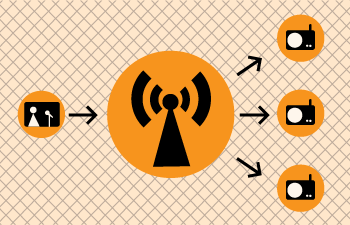
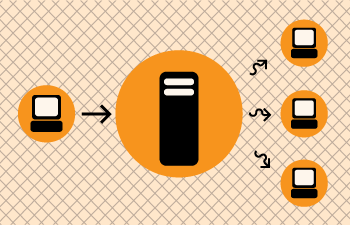
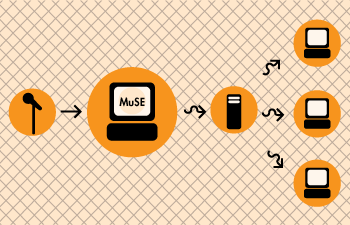
This was actually a strange time for documentation. Books still reigned and docs were those things you did when you got time. This created very strange dynamics at times. For example, being ‘the author’ of a book about software that was published (particularly) by O’Reilly made you crown prince(ss) of that project. You were then a star. Many projects, believe it or not, saw this as the only way to make money. They saw publishing as the revenue model. The result of this was that I was often chased away from projects because there was some self-appointed guru who had not yet written the book and they didn’t want FLOSS to steal their fame and thunder. This was really frustrating. I found it particularly frustrating because I knew that authors who were published generally made little or nothing unless the publication was a blockbuster (which was very rare).
We were patient with these projects. As the years wore on, some software producers acclimatized to the new state of docs on the web and came to be ok with FLOSS Manuals writing (much needed) docs for their projects.
I had some material I had written during a period when as an artist I led workshops about free software t (I traveled the world teaching free software, particularly those softwares related to streaming and sound). I needed somewhere to house the material, and then I needed to build a community of contributors who would add more docs as well as improve the existing ones.
Hence I started FLOSS Manuals. The first thing I did was build the technology, as I have explained elsewhere. I then put the docs on the new platform and waited for the hordes to come. Of course, they didn’t come. Ah…. I thought, someone forgot to tell me you have to build community. So I went about promoting FLOSS Manuals. Still they didn’t come. Not one. Then I started making more docs to make the site look active. Still no one. Then I registered accounts under many aliases on the site so it looked like there were more people than me at work. Then I waited.
It took quite a while. I don’t actually remember how long, maybe 6 months or so, before I got my first ‘anonymous’ bite. Some nice chap registered on FLOSS Manuals and made some improvements to a manual on Pure Data (Pd). I remember being so crazy excited. At last! I did some homework, trying to find out who this person was. I was so excited, I wrote to them and gushed. Of course, that scared them away and I never heard from them again. Ha!
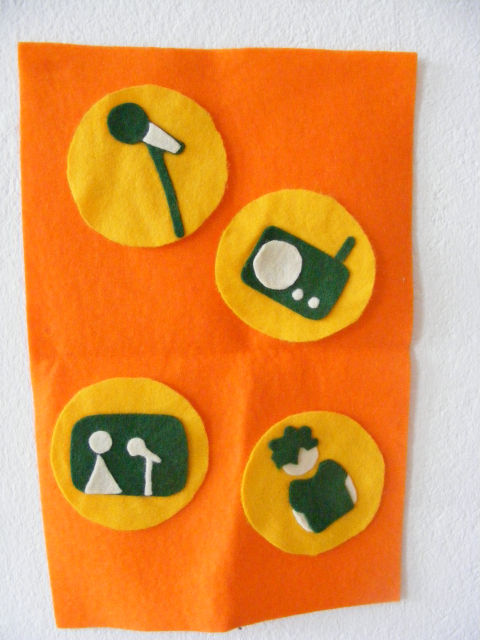
I went back to writing and promoting. Slowly, slowly, the community built up. I can’t remember that period well enough to suggest much secret sauce for the initial moments. These are the most critical moments as each little bit contributes to bringing a community to life. I remember some key characters that got in early and helped bring in others. The wonderful Mancunian, Mick Fuzz, was one such person – he was the first guy I met that thought documentation had as much potential power as I did. That was liberating and validating for me and I was excited to meet him.
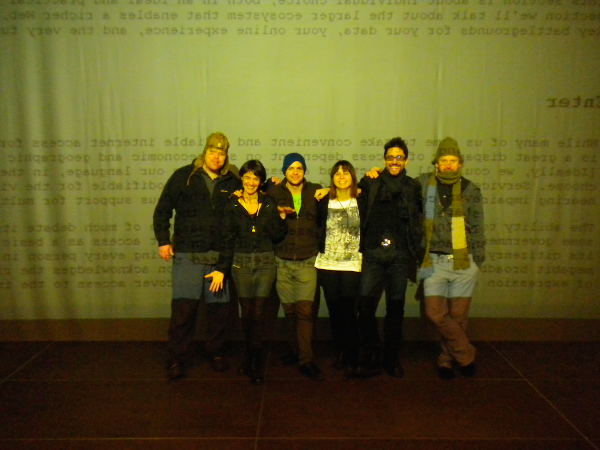
I remember Anne Gentle, a technical writer from Texas who was always looking to discover new ways to make docs. Also Andy Oram from the O’Reilly Boston office gave me lots of encouragement and promoted FM. Janet Swisher (now at Mozilla) helped spread the word a great deal too, and there were many others. These were central characters that formed the basis of a community, the fundamental roots of the organisation. I should say that most likely I didn’t find them, they found me, which speaks of the need to be out there and be seen but also, in order to be taken seriously I think you have to have something to show. A starting point that others can build on.

At the time I was very sold on the benevolent dictator model. I didn’t have any other models to play with really. I did have community building experience fro my time as a manager of radio in NZ, and from my time as an artist. But I wasn’t sure what I could use from past experiences.
I think I was probably a little over zealous at first. We had a common mailing list and I think I moderated it well but probably I was more focused and engaged than necessary at times.
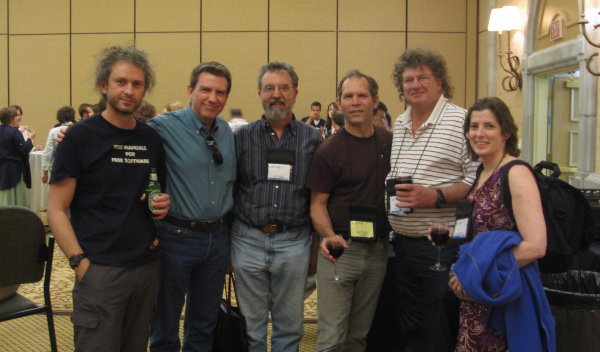
I learned a lot quickly, however. For example, I became very good at redirecting noisy, distracting, traffic.
Several issues came up over the years that were just a sinkhole for wasting community energy. One such issue was the ongoing blahblah about licensing of the material. FLOSS Manuals required all contributors to agree to licensing under the GPL. For those that don’t know, the GPL is actually a content license, worded to look a little software-specific. Don’t trust my reading of this, but do trust me when I say I talked to many many lawyers and experts on this and they all agreed. The only people that I found that didn’t agree were those that knew little about licensing and those were, unfortunately, the people that ended up on the list. The other problem people had, was to do with the Free Documentation Licence, which is one of the most unfree and ridiculous licenses ever made. FM first used the FDL, as after all, it was made by the Free Software Foundation – the same people that brought us the GPL. So, if it comes from the FSF and has the words free documentation in it, then it must be all right, right? Wrong. As I later discovered, the FDL was written by the FSF when they thought their business model was going to be selling books. Those were the days. The FSF also thought that O’Reilly had stolen their business model and they were pretty annoyed so they made their FDL a very very defensive license. It effectively stops any reuse of the material. It is a terrible license (which is why Wikipedia also got out of using it, but that is someone else’s story to tell).
At first, I used to be very dismissive of these license conversations. I was so sick of following them on the list, I tried to ignore them or stop them. Then I wrote an article about it. Eventually, I set up an additional licensing mailing list just for FM license discussions. I would encourage anyone that jumped into the main FM list talking licensing, to join that other list. I wasn’t subscribed to the FM license list, so it went on its own merry way and it didn’t slow the rest of us down. That was pretty effective.
Another issue that had the real potential for overriding community energy and tiring everyone out was the topic of One Laptop Per Child. At this moment OLPC was more like a religous movement than a technical endeavor. FM had done all their docs and they were distributed via an FM app on the OLPC. That was pretty cool really, and there were a lot of great people in the OLPC family. But the OLPC movement had the ability to also attract real Class A zealots. These were well meaning people, people who actually wanted to change the world. But they could go a ‘little’ too far down that road to the exclusion of all other concerns. This had the effect of derailing any conversation and was a major factor in lowering community energy. I had to work on the sidelines to corral those folk. There weren’t many, but they took some work. Staying positive and constructive was key.
Still, we did write a lot of material about the OLPC. We even had a number of pretty awesome Book Sprints about how to use the open source Sugar operating system it ran on.
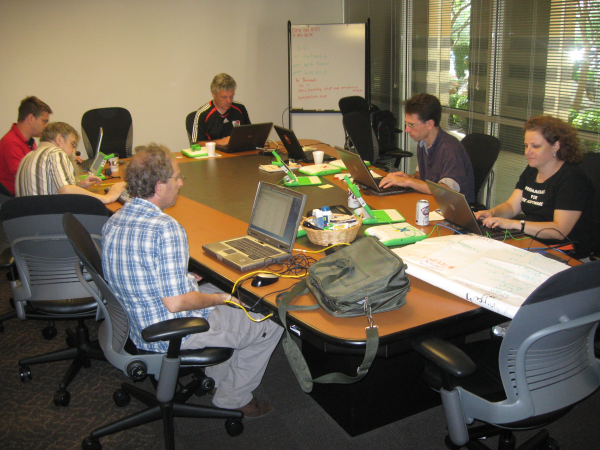
At the time, I read as much as I could about community building. However there wasn’t that much I found useful. I liked Karl Fogel’s Producing Open Source, and Jono Bacon’s The Art of Community. But much of what I read was about software development, not content development. It helped but not a great deal. I also mined the MIT archive on research about open source-related topics. At the time I think it was maintained by a buddy (Mako Hill) and it contained a lot of material about Wikipedia since that was the hot topic of the time. Still, not much helped. I also attended Wikimania a few times as the Wikipedia community seemed to be the most obvious source of information about how to build open content communities. The Wikimanias I went to were awesome and I learned a great deal talking to people. Of particular help was Brianna Laugher, Erik Möller and a few others. I also loved many of the presentations including one of my all time favorite presentations by Lawrence Liang on the authority of knowledge vs collaboration (which he later repeated at an Amsterdam conference and which is available here).
In short, I was hungry for information and tried to become the expert on building community. Any tool I could use, I wanted to know about.
As it happens, things worked out and FLOSS Manuals became a thriving community. The English community spawned a French community and both are still active. There was also (briefly) Finnish, Farsi, and Dutch communities. We did actually have a lot of material translated into (if I remember) about 30 languages but these were all ‘one offs’ and no language communities other than those mentioned above got off the ground.
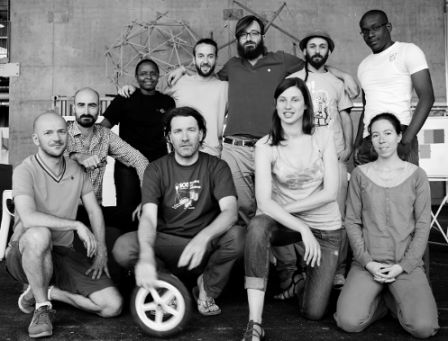
I think I learned a lot from this period of my career. So what remains with me? Well, in terms of suggestions about what is important in building community this is what I have left off the top of my head, I hope it might be of use to someone:
- have a starting point. Something others can join.
- make the mission clear and simple. Make sure you feel that there is the possibility others will share the same point of view (even if you have to go out and find them).
- don’t be a benevolent dictator. The longevity of a project means that there must be shared leadership. Otherwise, if you leave, it will fall apart.
- take all the hard tasks away from the community and leave the easy, fun, stuff for the community to do.
- do what you can to keep the community focused on the mission. Don’t allow distracting energies to override the community.
- celebrate individuals in the community in public as much as you can
- jump in to help as quickly as possible if a community member needs you.
- work shoulder-to-shoulder with the community as much as you can.
- find your protagonists, these people are in themselves community-building catalysts. Bring them in and make them feel at home.
- make the efforts of the community as visible as possible to those it is trying to benefit.
- be generous in attribution, including attribution for projects that are competitive to yours.
- get out there and present the project in as many forums as you can.
- internal energy is a product of engagement with others on the same mission, perceived momentum, and utility in this kind of community. You have to make these later two visible (momentum and utility) to your community to generate the former (engagement).
- be careful not to overload people with your own enthusiasm.
- as one of the leaders, it is all about you, and it is not at all about you.
- communicate loudly and clearly the pride you have for the project and the pride you expect others to have in the project.
- be careful with extrinsic incentives, they might not get you what you want.
- don’t hold ‘what you have’ too close. Let it go and let it have its own life in the world.
- don’t get discouraged if other projects, especially bad ones, get funding and support when you don’t. Stick it out.
- forget about the competition, just do what you do well.
And as a happy coincidence, I found this advice I wrote somewhere between 2010 and 2012, which seems pretty right-on. It’s written from the perspective of managing a community of contributors for a book but it is obviously deeply informed by my experience building the FLOSS Manuals community. From:
Once you are up and running, energy needs to be put into the ongoing growth of the contributor base (assuming you haven't hit capacity) and energy needs to put into keeping the current contributors active and involved. Again, drawing a parallel between book development and code development - many open source projects have fulltime community managers. Jono Bacon1 is one such person - he is the community manager for Ubuntu and wrote the excellent Art of Community Book2 which is well worth reading - but please keep in mind that book community management doesn't map directly onto free software community management.Keeping the contributors involved can be a great job but it also has some gnarly issues. The vast majority of the work is social and some logistics - making sure that the technology for contributing is working and is not a burden for example. You might not have to do any tech work yourself in these cases but you will need to find the person who will. One thing that has almost universal value in this role is the ability to keep a one-to-one interaction feeling with active members of your community. You are a central pin in the entire mechanism and people like to be close to the action. Keep communicating with people, keep them talking, put them in contact with others working on similar issues, expand their network, in other words - keep it social.In addition to this, another secret ingredient is fun. Don't make the mistake of taking things too seriously, and if you do, make sure that others don't see it. It's ok to blow your top occasionally - its actually good to be seen to be fallible - however you should apologise as soon as possible and get the good feeling back in the air. For the most part, however, it is very important that the community enjoys the ambiance - it might seem an intangible 'fun factor' but its more likely that its carefully engineered by you than it 'just happens'.Another very important issue is learning when and when not to channel attention and requests to members of the community. Those that are active will become natural pivots on the center of your community and it can turn into a burden for those core individuals if not managed with care. Make sure you are keeping an eye on their frustration levels - if you see they're getting too much of a load, put on them by normal community processes then you may need to step in and redirect or take on some of that traffic.These core members are very important to the health of the project but don't be disappointed when they leave. Communities have natural cycles and, additionally, community members have other lives. When they inevitably move on, make sure you acknowledge them in front of the community - this is not only a good thing to do, it will relieve any disappointment you may feel and it will signal to the community that everyone is respected and valued as individuals - not just as production engines.Also keep in mind that although natural hierarchies will evolve, it is quite important to keep the community in an egalitarian mindset. All contributions should be valued and all contributors should be valued. That also means that you must keep the balance of power even. Core contributors will naturally get more say in how things go but ensure that channels are open for all voices in the community to have their say. It is also for this reason that it is not a good idea to bring any publishing world hierarchical structures to community management. Don't think of editors and writers, think of collaborators and facilitators.If people are enjoying themselves and enjoying the social environment, they are of course not necessarily being productive. My experience is, however, that people involved in this kind of project generally like being productive. If they are talking its usually a sign they are working.
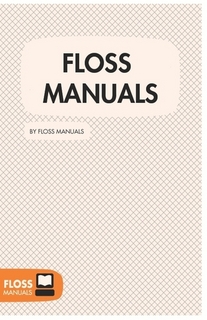
Crazily, you can still buy the manual on FLOSS Manuals we wrote in 2008, here!

